Year End 2014
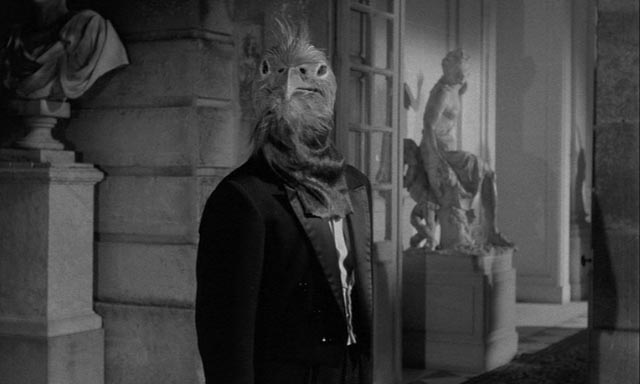
Continuing a long-running trend, I saw fewer than ever movies in a theatre this year, although I watched almost four hundred at home on disk. Admittedly, when I did watch some of those disks I regretted not having made the effort to get out to see a particular film on the big screen. But my dislike of the multiplex experience makes it increasingly difficult to summon the energy to drag myself to the theatre. Of the few I did go out to see, there were a few duds and disappointments – Need For Speed (I went, as usual, with my friend Curtis because we both enjoy the Fast & Furious series and thought maybe this one would offer the same kind of pulp pleasure; it didn’t); the abysmal Godzilla; Spike Jonze’s Her, probably the year’s biggest disappointment, a one-note idea beaten to death with a surprising dearth of wit. The films I enjoyed most were Paul W.S. Anderson’s Pompeii, Darren Aronovsky’s Noah, Steven Knight’s Locke, Frank Pavich’s Jodorowsky’s Dune and Hayao Miyazaki’s The Wind Rises.
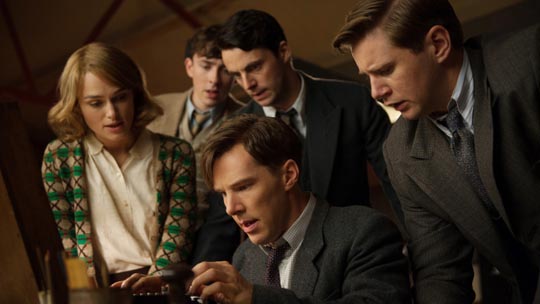
The only Christmas release I got out to see (last night, December 30) was Morten Tyldum’s The Imitation Game – interestingly, a Norwegian director making an impeccably English film. It’s that “impeccable” which is the catch. Written by Graham Moore with a great deal of wit, directed by Tyldum with sensitivity, and performed flawlessly by an excellent cast, it nonetheless lacks a certain passionate intensity which the material demands. The story of the breaking of Germany’s Enigma code is inherently dramatic and would remain so even without the tragic overlay of Alan Turing’s personal story – a brilliant, prickly, eccentric, seriously asocial man whose personal life was a matter of suppressed secrets, who built a machine to unlock the enemy’s secrets and thereby probably shortened the war by years and saved millions of lives. His reward for this service to his country was, in effect, an extra-judicial execution for the crime of being homosexual (after a year of “chemical castration” through hormone treatments intended to kill his homosexual tendencies, he committed suicide at age 41). The film plays this as tragedy, but also somewhat embalms it in a historical past which, by implication, we have left far behind. The sense of outrage the story demands is thus muted. In addition, although the role offers a wonderful showcase for Benedict Cumberbatch – unquestionably the most interesting actor working today – the film comes perilously close to sentimentalizing Turing, as if the filmmakers feared that this prickly, difficult character needed to be softened to elicit audience sympathy for the crime committed against him. The film is so tastefully restrained that, paradoxically, everyone who learns of Turing’s homosexuality – even, eventually, the policeman who arrests him – accepts it sympathetically, rather undermining the horror of what life must have been like for a man like him in those times. If this sounds overly harsh, I don’t intend it to be – The Imitation Game is elegant, well-crafted and, thanks to Cumberbatch and his excellent co-stars, very entertaining. I just wish it carried a greater sense of anger.[1]
On disk, it’s been a rich and varied year. Despite continuing prophecies of the demise of DVD and Blu-ray, there seemed to be an endless stream of enticing releases – far too many to keep up with. I still tend to buy more than I actually have time to watch and probably if I ever win the lottery, I’ll end up with a warehouse full of movies I’ll never be able to get around to watching. Interestingly, more companies appear to be aiming for the kind of stature formerly reserved for Criterion in the States and the BFI in Britain, with impressive restorations supported by commentaries and supplemental material which help to provide critical and historical context to films both familiar and obscure. Arrow and Eureka/Masters of Cinema in England are two of the best, with Twilight Time and Shout! Factory in the States both releasing some great disks. Other companies whose output I’ve had less opportunity to sample (prices tend to be higher for some of these, making them prohibitive) include the Cohen Film Collection, Kino Lorber, Olive Films and Flicker Alley.
Given the number of disks I’ve watched this year, it’s difficult to come up with a “best” list, so here I’ll give just a brief survey of what I’ve been watching (some of which were released earlier, but I only caught up with them this year).
The BFI
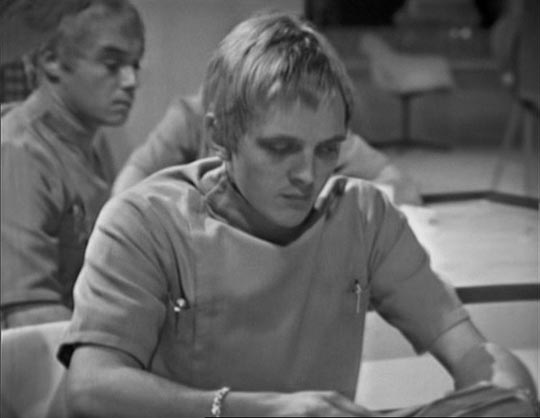
Although the BFI released impressive editions of Thorold Dickinson’s Gaslight, Bill Forsyth’s That Sinking Feeling, Val Guest’s The Day the Earth Caught Fire and Captain John Noel’s The Epic of Everest, it was their continuing recovery of classic British television that I enjoyed the most. With their hefty set of BBC Ghost Stories For Christmas, John Mackenzie’s adaptation of Alan Garner’s Red Shift, the serial based on Peter Dickinson’s The Changes trilogy and most recently Out of the Unknown, the BBC science fiction series from the ’60s, most episodes of which were based on stories by major British and American writers, the Institute has been foregrounding a long-standing commitment to genre on British television (with an official DVD release of the classic 1954 adaptation of George Orwell’s Nineteen Eighty Four due early in the new year).
Criterion
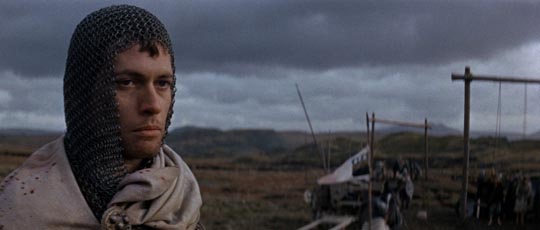
It’s impossible to keep up with Criterion’s output these days. I’ve only got around to watching two of the six films in their World Cinema Project box set – Kim Ki-young’s The Housemaid (1960) and the fascinating Mexican neo-realist Redes (1936) co-directed by Emilio Gomez Muriel, Fred Zinneman and photographer Paul Strand. This kind of recovery of little-known features from cultures which have long been outside the mainstream of western cinema is a valuable adjustment of film history. That the films themselves are powerful, dramatic and artfully made makes this kind of project more than merely academic.
Criterion’s commitment to the full range of cinematic possibilities embraces silent classics (Harold Lloyd’s The Freshman, Carl Th. Dreyer’s Master of the House), Golden Age Hollywood (Frank Capra’s It Happened One Night, Alfred Hitchcock’s Foreign Correspondent, Howard Hawks’ Red River), works straddling the border between art and exploitation (Don Siegel’s Riot in Cell Block 11, Monte Hellman’s The Shooting and Ride in the Whirlwind, David Cronenberg’s Scanners and Stereo). You have to love a company that can give the same kind of care and attention to Ingmar Bergman’s early features Summer With Monika and Summer Interlude, Shohei Imamura’s scathing Vengeance Is Mine and Stanley Kramer’s gigantic folly It’s a Mad, Mad, Mad, Mad World, but for me the highlights of the year were Roman Polanski’s Macbeth, Georges Franju’s Judex and two box sets: the new Eclipse release Keisuke Kinoshita and World War II and the magisterial Complete Jacques Tati.
Arrow Video
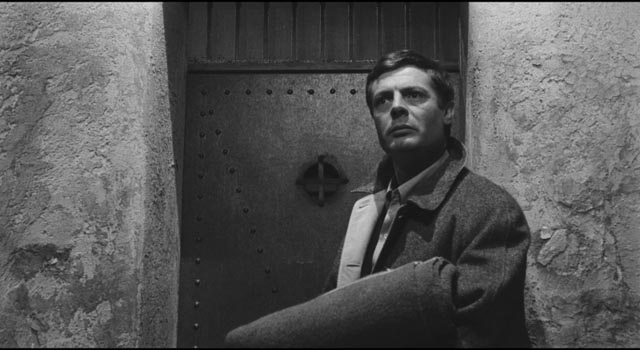
England’s Arrow Video has been matching the BFI and Criterion with some of their releases, while simultaneously equaling Shout! Factory’s lavish editions of exploitation and genre titles. Arrow’s range is impressively broad, with excellent editions of Jack Hill’s Pit Stop, Brian DePalma’s Obsession, Don Siegel’s The Killers, Donald Cammell’s White of the Eye, Andrei Konchalovsky’s Runaway Train, Douglas Hickox’s Theatre of Blood, Philip Kaufman’s Invasion of the Body Snatchers, and Robert Altman’s The Long Goodbye. The highlights of the year, though, were their superb presentation of Elio Petri’s first feature L’Assassino and a pair of substantial dual-format box sets: Bruce Robinson’s unique and brilliantly melancholic comedy Withnail and I (paired with his follow-up feature, How to Get Ahead in Advertising) and Camera Obscura: The Walerian Borowczyk Collection, featuring the iconoclastic Polish director’s first five features and a collection of short films, accompanied by numerous supplements and a fat book containing extensive critical writing and a set of short stories by Borowczyk.
Shout! Factory
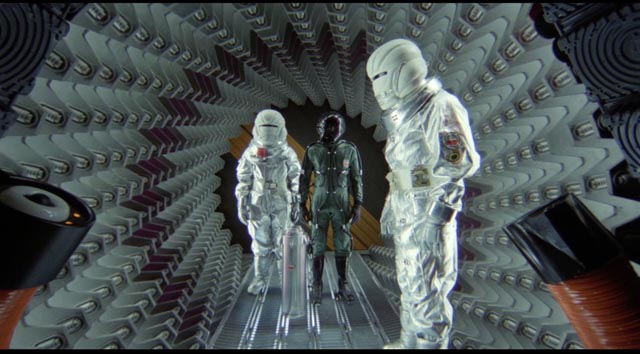
Shout! Factory’s aims are perhaps far less lofty than the BFI’s, Criterion’s or even Arrow’s, but they have been lavishing attention on many of the exploitation and genre films they release, with commentaries and extensive supplements on titles as varied as Paul Schrader’s Cat People, George Romero’s Day of the Dead, Monkey Shines and The Dark Half, Kevin Connor’s Motel Hell, John Hough’s Legend of Hell House, Antonia Bird’s underrated Ravenous, Stanley Donen’s absurd Saturn 3, and Kevin Tenney’s Witchboard. Their most impressive releases this year, however, were the two Vincent Price Collection box sets (a total of thirteen films spanning Price’s horror career from the late ’50s to the mid-’70s) and the devoted restoration of Clive Barker’s Nightbreed.
Twilight Time
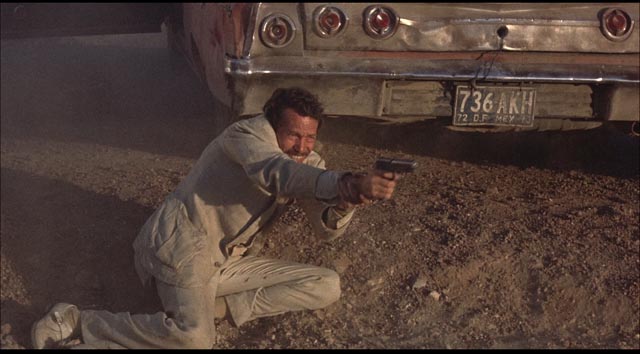
If you read various message boards, you’ll find a lot of criticism of Twilight Time, a company co-founded by Nick Redman in 2011, whose disks are sold exclusively through the Screen Archives website. The label licenses titles from major studios and puts out editions usually limited to 3000 units. This limited availability and a rather high price (US $30) gives great offence to some people who apparently believe that everything should be cheap and easily accessible. It does seem odd at times that the licensing studios aren’t releasing some of these films in more widely available editions, but the studios have been cutting back for years now while smaller companies take up the slack with more limited resources. The complaint about price seems to be based on a misunderstanding of how this business works; Twilight Time has to pay for the rights to a particular title and their agreements with the films’ owners dictate the limited number of units, so in order to cover costs (which increasingly include adding commentary tracks and other supplements) and, hopefully, make enough of a profit to keep the company afloat, they have no choice but to charge the price they do (which is less than Criterion’s list price, although with their wider availability, it’s possible to get Criterion titles at a decent discount). Collectors are free to abstain from paying this price, but there’s an odd arrogance in the complaint that these people seem to think that they have a natural right to get the disks they want as cheaply as they want. Maybe I’m a sucker but I’ve actually bought more than thirty of Twilight Time’s Blu-rays and DVDs over the past few years (and yes, if the price was lower, I would have bought more).

This year, Twilight Time have continued their advocacy of Sam Peckinpah with substantial editions of Bring Me the Head of Alfredo Garcia and The Killer Elite (which included the television drama Noon Wine); Stanley Kramer was represented by Judgment at Nuremburg (his best film) and Inherit the Wind; John Frankenheimer by The Train and Birdman of Alcatraz. The Blu-ray upgrade of Ralph Nelson’s Fate Is the Hunter was supplemented by Ka Shen’s Journey, a moving documentary about co-star Nancy Kwan. The range of other titles is quite dizzying, from the Supermarionation double-feature Thunderbirds Are Go and Thunderbird 6 to the historical epics The Blue Max and Khartoum; from Hollywood classics Drums Along the Mohawk and Jane Eyre (1943) to the ’70s horror of Robert Mulligan’s The Other, from the violence of Michael Winner’s The Mechanic to the Brit-com of Rita, Sue and Bob Too and Fever Pitch. But my favorites this year were undoubtedly Otto Preminger’s eccentric entry in the post-Psycho sweepstakes, Bunny Lake Is Missing, and more particularly Jimmy Murakami’s innovative animated version of Raymond Briggs’ devastating black comedy about nuclear war When the Wind Blows (1986), which was paired with an illuminating documentary about the director, Jimmy Murakami: Non-Alien, in which the displaced Japanese-American returns late in life to visit the site of the concentration camp in California he was sent to with his family during the Second World War.
Other Labels
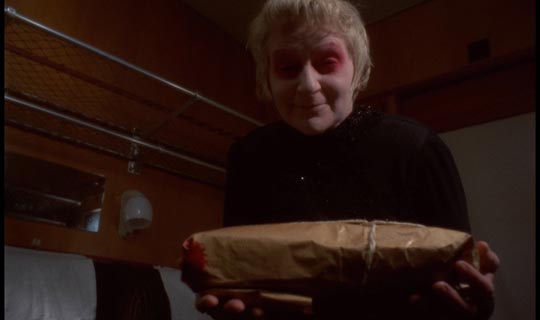
Kino Lorber has been putting out a lot of titles, but (for economic reasons) I only bought Pete Walker’s Frightmare (his best and most blackly comic film) and Bill Gunn’s Ganja and Hess (which was actually released back in 2012). Eureka/Masters of Cinema have been releasing a steady stream of enticing titles, but again financial limitations have kept me from picking up many of them; this year, I bought Richard Fleischer’s Violent Saturday and Franklin J. Schaffner’s The War Lord, both of which were excellent upgrades of previously disappointing DVDs. Grindhouse Releasing offered an exceedingly odd pair this year with Amos Sefer’s An American Hippie in Israel and Frank Perry’s The Swimmer, both released in generously supplemented editions. Of the wide array of releases from the Cohen Film Collection, I limited myself to Jean-Pierre Melville’s Two Men in Manhattan, which like last year’s The Damned by Rene Clement was a previously unknown work by a favourite director. Cohen’s Blu-ray edition of Fritz Lang’s underrated Hangmen Also Die is definitely high on my list of yet-to-buy disks.
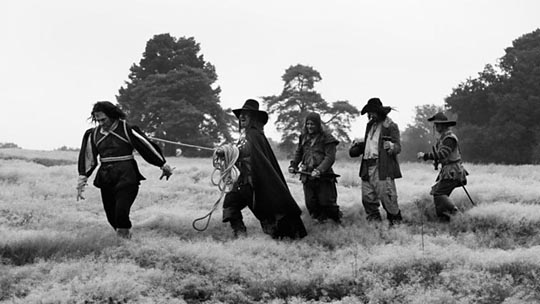
Drafthouse Films offered the extremely eccentric sci-fi/fantasy/religious allegory epic The Visitor, co-written and directed by Giulio Paradisi (under the name Michael J. Paradise); almost indescribable, this would probably make an excellent mind-bending double-bill with An American Hippie in Israel. With John Huston, possibly portraying God, coming to Earth to do battle with an eight-year-old girl who may be Satan, this is quite unlike any of the more familiar Italian Exorcist/Omen rehashes. I can’t say it’s good in any sense, but it certainly offers an interesting viewing experience. At the other end of the spectrum, Drafthouse released a beautiful edition of Ben Wheatley’s unique A Field in England, a hypnotic immersion into English mysticism set during the Civil War, which captures the same sense of historical depth in the rural landscape which is evoked in the novels of John Cowper Powys and, in film, by Michael Powell in A Canterbury Tale and I Know Where I’m Going and by Patrick Keillor in Robinson in Ruins.
Other notable films on disk (in alphabetical order):
The Act of Killing (Director’s Cut)(Joshua Oppenheimer)
Animal Farm (John Halas & Joy Batchelor)
The Babadook (Jennifer Kent)
Byzantium (Neil Jordan)
Countdown (Robert Altman)
Dario Argento’s Dracula 3D (Dario Argento)
Disco and Atomic War (Jaak Kilmi)
… et mourir de plaisir (Blood and Roses)(Roger Vadim)
Eurocrime! (Mike Malloy)
The Grand Budapest Hotel (Wes Anderson)
In the Fog (Sergei Loznitsa)
Inside Llewyn Davis (The Coen Brothers)
Island of Terror/Night of the Big Heat (Terence Fisher)
A Jester’s Tale/Krabat/The Stolen Airship (Karel Zeman)
Jodorowsky’s Dune (Frank Pavich)
The Land of Hope/Why Don’t We Play in Hell? (Sono Sion)
The Machine (Caradoc James)
Mud (Jeff Nichol)
My Name is Nobody (Tonino Valerii)
Nymphomaniac (Lars von Trier)
Possession (Andrzej Zulawski)
The Raid 2 (Gareth Evans)
The Shout (Jerzy Skolimowski)
The Sicilian Clan (Henri Verneuil)
Sorcerer (William Friedkin)
Sweetwater (Logan Miller & Noah Miller)
Under the Skin (Jonathan Glazer)
Video Nasties: Draconian Days (Jake West)
We Can’t Go Home Again (Nicholas Ray)
_______________________________________________________________
(1.) I should have known … it appears that much of what bothered me about The Imitation Game is probably due to the insidiously heavy hand of Harvey Weinstein, who thought that Turing’s life was too much of a downer and needed an uplifting ending (that final scene with Joan [Keira Knightley] visiting the already painfully sick Turing and telling him how much better the world is because he has lived in it was concocted because the actual suicide would have left viewers depressed and, no doubt, hampered the film’s Oscar chances.
But it turns out that this compromised ending is the least of the film’s problems: in an article in The New York Review of Books Christian Caryl outlines the distortions and outright lies contained in Graham Moore’s script, not only about the biographical details of Turing’s life, but also about the larger historical record dealing with the role of Turing and countless other codebreakers at Bletchley Park during the war.
These inaccuracies are outlined in an article in Slate by L.V. Anderson and after reading the catalogue of distortions and outright inventions, one has to start wondering why the filmmakers wanted to use Turing as a subject at all. They obviously had an agenda to do with the historical persecution of homosexuals, but apparently Turing didn’t actually fit the bill they had in mind; and so they reinvented his life, ramping up the quirky outsider element at the same time they transformed his actual sexual nature into something darker and more tragic than it actually was. Even the hormone treatments intended specifically to kill his sexual impulses were far less debilitating than depicted and didn’t directly result in his death (whether accident or suicide). Certainly, liberties are always taken with “true stories” in order to make them work as narrative, but this level of distortion in order to make a rather obvious point seems puzzling. Is it really necessary to falsify the life of a fascinating character like Turing when surely there are more than enough real life horror stories about the persecution of gays to choose from? (return)
Comments